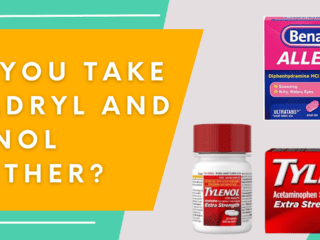Drug Interactions
According to the U.S. National Library of Medicine, drugs that may interact with omeprazole include the following:
- Antiretrovirals such as rilpivirine-containing products (Edurant), atazanavir (Reyataz), nelfinavir (Viracept), saquinavir (Invirase), other antiretrovirals.
- Warfarin (Coumadin, Jantoven)
- Methotrexate (Otrexup (PF), Xatmep, Trexall)
- Clopidogrel (Plavix)
- Citalopram (Celexa)
- Cilostazol
- Phenytoin (Phenytek)
- Diazepam (Diastat AcuDial, Diazepam Intensol, Valium)
- Digoxin (Digox, Lanoxin Pediatric, Digitek)
- Drugs dependent on gastric pH for absorption [e.g., iron salts, erlotinib (Tarceva), dasatinib (Sprycel), nilotinib (Tasigna), mycophenolate mofetil (CellCept, Myfortic), ketoconazole (Nizoral A-D, Xolegel, Nizoral)/itraconazole (Sporanox, Sporanox Pulsepak, Onmel)]
- Tacrolimus (Envarsus XR, Protopic, Astagraf XL)
Please note that this list may not be complete, and other interactions with drugs not listed here may occur.
Omeprazole and Antiretrovirals
The interaction between antiretroviral drugs and proton pump inhibitors (PPIs) like omeprazole can vary from patient to patient, and its mechanism is not fully understood. Omeprazole may reduce the antiviral effect of some antiviral drugs (e.g. rilpivirine, atazanavir, and nelfinavir) and promote the development of drug resistance.
On the contrary, other antiviral drugs such as saquinavir may be more effective when taken in combination with omeprazole, potentially increasing toxicity.
Omeprazole and Warfarin
Warfarin is an anti-clotting drug (or anticoagulant) used to lower the risk of blood clots. Taking omeprazole in combination with warfarin may jeopardize blood coagulation and lead to abnormal bleeding and even death.
Omeprazole and Methotrexate
Omeprazole can increase the blood levels and side effects of methotrexate. Concomitant use of the two drugs may elevate and prolong serum concentrations of methotrexate and its metabolite hydroxymethotrexate, possibly leading to methotrexate toxicities.
Omeprazole and Clopidogrel (Plavix)
Omeprazole may reduce the effectiveness of clopidogrel in preventing a heart attack or stroke.
Omeprazole and Citalopram
Omeprazole may increase the exposure of citalopram, leading to an increased risk of QT prolongation, which means that the heart takes longer than usual to recharge between beats.
Omeprazole and Cilostazol
Omeprazole may significantly increase the blood levels of cilostazol, increasing the risk and severity of side effects. Concomitant use may cause bleeding, heart palpitations, and irregular heartbeat.
Omeprazole and Phenytoin
Omeprazole may increase the exposure of phenytoin, increasing the risk of toxicity and side effects.
Omeprazole and Diazepam
Omeprazole may increase the exposure of diazepam, increasing the risk of toxicity and side effects.
Omeprazole and Digoxin
Omeprazole may increase the exposure of digoxin, increasing the risk of toxicity and side effects.
Omeprazole and drugs dependent on gastric pH for absorption
Omeprazole can reduce the absorption of pH-dependent drugs due to its effect on reducing stomach acidity.
Omeprazole and Tacrolimus
Omeprazole may increase the exposure of tacrolimus increasing the risk of toxicity and side effects. Combination of these drugs is especially dangerous for transplant patients.
Omeprazole and Tums
Tums does not seem to have adverse interactions with omeprazole, however it is always recommended to consult your doctor.
Food Interactions
Sometimes the foods we eat and the beverages we drink can also interact with our medications.
Omeprazole may reduce the absorption of:
- Calcium
- Folic acid
- Vitamin C (ascorbic acid)
- Vitamin B12 (cobalamin)
(Please note that this list may not be complete, and there may be other foods and beverages that interact with this drug.)
Make sure to replenish these nutrientsâ âespecially if you are taking omeprazole for an extended periodâ âby eating plenty of foods like green leafy vegetables, spinach, cabbage, turnip greens, broccoli, Brussels sprouts, cauliflower, soya beans, tofu and nuts, citrus fruits, sweet and white potatoes, winter squash, tomatoes, beans, bread, cereals, rice, and pasta.
Alcohol Interactions
For more information, please visit our omeprazole and alcohol interactions page.
Disease and Condition Interactions
Sometimes certain medications can increase the risk of adverse side effects for patients with certain diseases or other medical conditions. According to the U.S. National Library of Medicine, diseases and medical conditions that are known to interact with omeprazole negatively include:
- Cancer
- Dementia
- Liver diseases
- Lupus
- Osteoporosis
Please note that this list may not be complete, and there may be other diseases and medical conditions where patients should not take omeprazole.
Omeprazole and Cancer
Omeprazole may interact with medical tests for the diagnosis of certain cancers. Specifically, the decrease in gastric acidity caused by omeprazole can increase levels of a tumor marker called serum chromogranin A (CgA). This interaction may cause false-positive results in cancer diagnosis.
Omeprazole and Dementia
Recent clinical studies have shown that PPIs like omeprazole may be associated with an increased risk of dementia, including Alzheimer’s disease. However, in other studies, scientists have observed a decreased risk of dementia. Therefore, the interaction between PPIs and the risk of dementia remains controversial.
Omeprazole and Liver Disease
Researchers have discovered that suppressing stomach acid with PPIs can alter specific gut bacteria and may promote liver injury and the progression of chronic liver disease.
Omeprazole and Lupus
PPIs may induce subacute cutaneous lupus erythematosus, which is an autoimmune disease.
Omeprazole and Osteoporosis
Omeprazole may increase the risk for bone fractures, especially with longer use, higher doses, and in older adults. Calcium supplements may be required to prevent developing osteoporosis.
Omeprazole and Pregnancy
For more information, please see our omeprazole and pregnancy interactions page.
Disclaimer: this article does not constitute or replace medical advice. If you have an emergency or a serious medical question, please contact a medical professional or call 911 immediately. To see our full medical disclaimer, visit our Terms of Use page.





